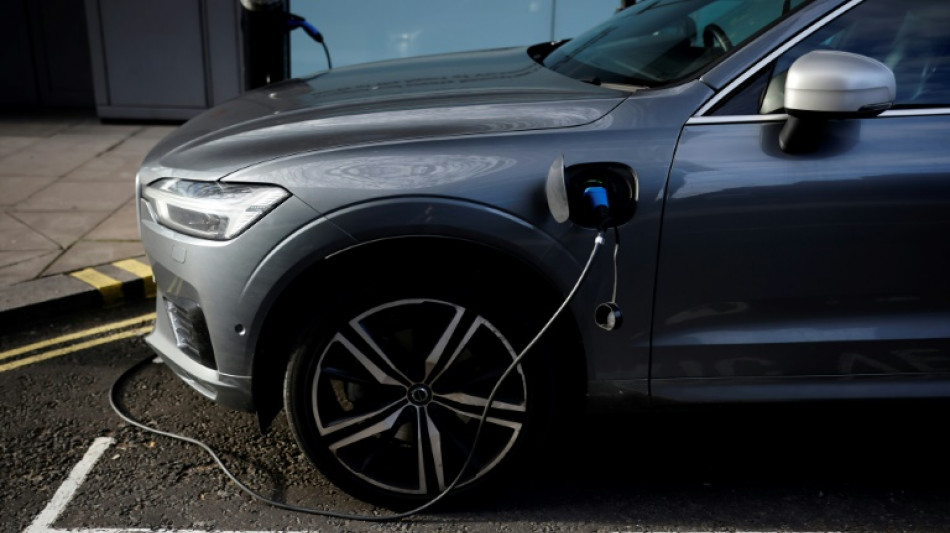
-
 Vietnam village starts over with climate defences after landslide
Vietnam village starts over with climate defences after landslide
-
'Happiness, love' at Moonie mass wedding after Japanese court blow
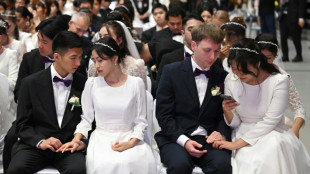
-
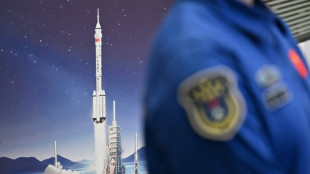 Veteran Chinese astronaut to lead fresh crew to space station
Veteran Chinese astronaut to lead fresh crew to space station
-
Pilgrims gather as Pope Francis begins lying in state

-
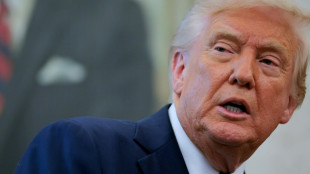 Asian markets rally as Trump comments ease Fed, China trade fears
Asian markets rally as Trump comments ease Fed, China trade fears
-
Saudi 'city of roses' offers fragrant reminder of desert's beauty

-
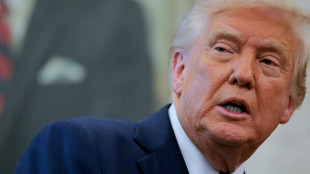 Trump says won't fire Fed chief, signals China tariffs will come down
Trump says won't fire Fed chief, signals China tariffs will come down
-
India hunts gunmen who massacred 26 in Kashmir tourist hotspot

-
 'No one else will': Sudan's journalists risk all to report the war
'No one else will': Sudan's journalists risk all to report the war
-
UK hosts new round of Ukraine talks

-
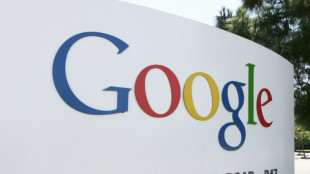 Trial testimony reveals OpenAI interest in Chrome: reports
Trial testimony reveals OpenAI interest in Chrome: reports
-
Tokyo's newest art star: one-year-old Thumbelina
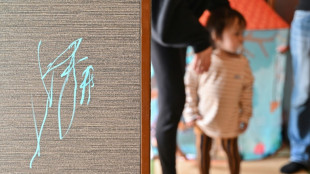
-
 Ronaldo hunts Asian Champions League glory in Saudi-hosted finals
Ronaldo hunts Asian Champions League glory in Saudi-hosted finals
-
Scientists sound alarm as Trump reshapes US research landscape
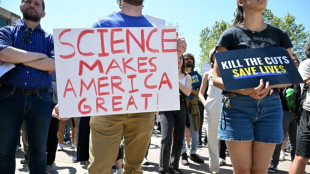
-
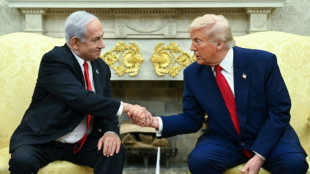 Trump's return boosts Israel's pro-settlement right: experts
Trump's return boosts Israel's pro-settlement right: experts
-
Trump solo: first lady, children out of frame in new term
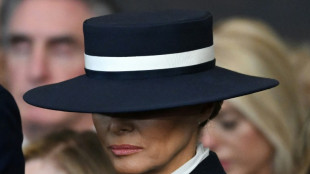
-
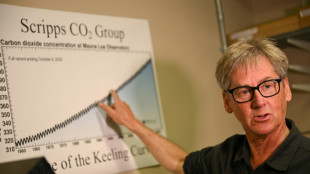 Climate watchers fret over Trump's cut to sciences
Climate watchers fret over Trump's cut to sciences
-
Moving fast and breaking everything: Musk's rampage through US govt
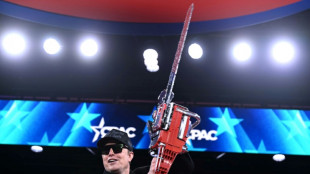
-
 'Everyday attack' - Trans youth coming of age in Trump's America
'Everyday attack' - Trans youth coming of age in Trump's America
-
A stadium and a jersey for Argentina's 'Captain' Francis

-
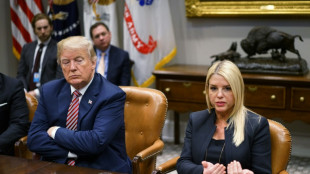 New Trump task force vows to root out 'anti-Christian bias'
New Trump task force vows to root out 'anti-Christian bias'
-
Auto Shanghai showcases new EV era despite tariff speedbumps
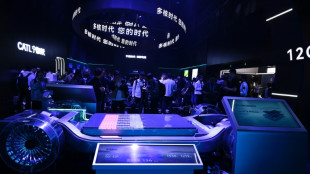
-
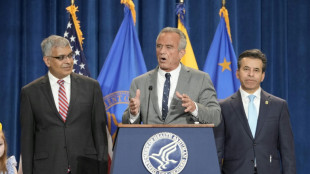 Trump's administration moves to scrap artificial food dyes
Trump's administration moves to scrap artificial food dyes
-
Musk to reduce White House role as Tesla profits plunge
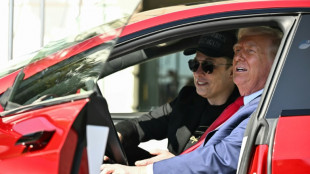
-
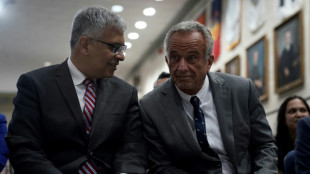 US official backs off promise to solve cause of autism by September
US official backs off promise to solve cause of autism by September
-
Guardiola joy as Man City go third after dramatic win over Villa

-
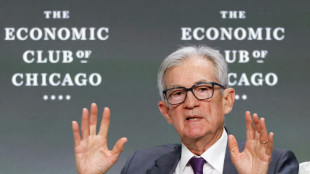 Trump says has 'no intention' of firing Fed chief
Trump says has 'no intention' of firing Fed chief
-
Jury finds New York Times did not libel Sarah Palin

-
 UN appoints envoy to assess aid for Palestinians
UN appoints envoy to assess aid for Palestinians
-
Celtics star Tatum 'doubtful' for game two against Magic

-
 Former England star Flintoff reveals mental battle after car crash
Former England star Flintoff reveals mental battle after car crash
-
Defending champion Korda chases first win of season at Chevron Championship

-
 Olmo fires Liga leaders Barca past Mallorca
Olmo fires Liga leaders Barca past Mallorca
-
Nunes strikes at the death as Man City sink Villa to boost top-five bid

-
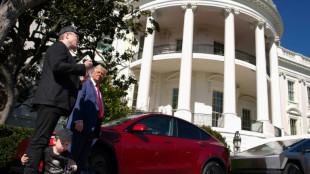 Tesla says profits plunge 71%, warns of 'changing political sentiment'
Tesla says profits plunge 71%, warns of 'changing political sentiment'
-
WHO announces 'significant' layoffs amid US funding cuts

-
 PSG draw with Nantes to stay unbeaten in Ligue 1
PSG draw with Nantes to stay unbeaten in Ligue 1
-
Trump's administration moves to ban artificial food dyes
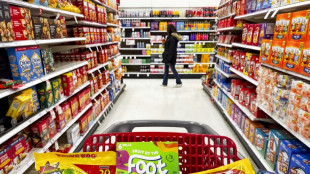
-
 Gunmen kill dozens of civilians in Kashmir tourist hotspot
Gunmen kill dozens of civilians in Kashmir tourist hotspot
-
US Treasury chief expects China tariff impasse to de-escalate
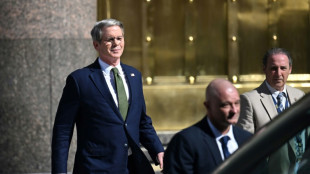
-
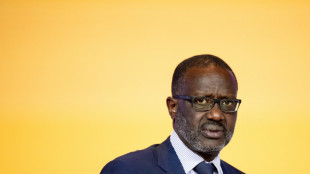 I.Coast opposition leader Thiam barred from presidential election
I.Coast opposition leader Thiam barred from presidential election
-
Top US court leans toward parents in case on LGBTQ books in schools

-
 At least 24 killed in Kashmir attack on tourists
At least 24 killed in Kashmir attack on tourists
-
Rahul powers Delhi to big win over Lucknow in IPL

-
 Colombian cycling star 'Lucho' Herrera denies murder conspiracy
Colombian cycling star 'Lucho' Herrera denies murder conspiracy
-
Trump, Zelensky to attend Pope Francis's funeral Saturday

-
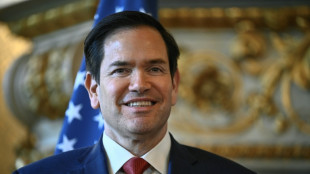 US State Department to cut positions, rights offices
US State Department to cut positions, rights offices
-
Ukraine ready for direct talks with Russia only after ceasefire: Zelensky
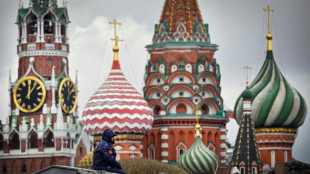
-
 Myanmar Catholics mourn pope who remembered their plight
Myanmar Catholics mourn pope who remembered their plight
-
Pope's Vatican 'family' pay tearful respects


Electric car batteries could be key to boosting energy storage: study
Electric car batteries could be used to boost power storage in the future, injecting electricity into the grid during times of scarcity or storing electricity during periods of excess, a new study found Tuesday.
Renewable energy is essential for the Paris Agreement goal of limiting global warming to well below two degrees Celsius, but the need to scale up quickly and the intermittency of wind and solar have raised concerns about meeting electricity demand.
One way to help solve this problem is boosting the storage capacity of electricity grids, so that even when there is no sun or wind energy supply won't be interrupted.
New research published Tuesday found that electric car batteries could help boost short-term grid storage in times of increased demand or lower supply, either by setting up "vehicle-to-grid" or "second use" schemes.
"Harnessing this potential will have critical implications for the energy transition," said the study published in Nature Communications.
A "vehicle-to-grid" approach would allow drivers to connect car batteries to the grid for short term-storage when needed, the authors said.
For example, commercial fleets could inject power into the grid when at a depot.
"Second-use" schemes would allow drivers to sell or donate car batteries once they can no longer be used to power vehicles, which is generally when their capacity falls below 70 to 80 percent.
- Micro-payments -
Even a low level of participation from drivers could make a big difference, the researchers said.
"Low participation rates of 12 to 43 percent are needed to provide short-term grid storage demand globally," study co-author Chengjian Xu, of Leiden University in The Netherlands, told AFP.
"Short-term grid storage demand could be met as early as 2030 across most regions", he added, saying this was a conservative estimate.
By 2050, it would exceed the storage capacity required to help limit global warming to well below 2C, as outlined by the International Renewable Energy Agency.
The work examined global data -- including from the main electric car battery markets in China, India, the European Union and the United States -- taking into consideration average driving distances, driver behaviour and temperature, all of which can affect car battery health.
The authors said governments should introduce incentives and regulations to ensure vehicle-to-grid and second use schemes can take off.
"This can include market-based efforts such as micro-payments for services to the grid," Chengjian said, adding that vehicle-to-grid use would have little harm on battery life.
Some car firms such as Hyundai and Renault are already testing vehicles equipped with vehicle-to-grid technology, while some Teslas are already compatible.
The International Energy Agency (IEA) estimates that there will be some 200 million electric vehicles sold in 2030 -- about 20 percent of all cars sold -- an 11-fold increase from today's numbers.
IEA analyst Luis Lopez told AFP using car batteries as short-term storage was "quite promising but it's not a silver bullet", since it would provide less than one percent of storage needed under a net zero by 2050 scenario.
It would also require proper "communication" between the power system and the electric cars.
"If the power system, EVs (electric vehicles) and charging infrastructure all speak the same language, it is easier to aggregate more vehicles for power system needs".
L.Dubois--BTB


